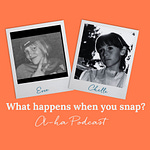When it comes to the relationships you prioritize in your life - family, friends, colleagues, and community - do you really belong, or are you just fitting in?
“Belonging requires that your essence is respected,” explained Dr. Daniel Siegel founding co-director of the Mindful Awareness Research Center at UCLA and the executive director of the Mindsight Institute when we interviewed him for this podcast. “If you have to give up your own ethical choices about what’s right for you to win the approval of others, this is not the same as belonging.”
For example, when we conform to society’s “good girl” expectations and try to please everyone at the expense of our own wellbeing, we may fit in, but we forfeit the opportunity to truly belong. True belonging requires us to honor our own needs, creating space for genuine connections that uplift us rather than drain us.
Dan also encourages us to explore belonging beyond just our individual needs (Me) and recognize the vital role of our interconnectedness with all of humanity and nature (We). He calls this ‘MWe’.
“The word ‘MWe’ helps us to embrace the Me and We as an intraconnected whole,” said Dan. “MWe acknowledges that our individual needs are important, and our relational needs as living beings who are sharing a planet matter as well. It helps to produce an integrated self — which leads not only towards caring for ourselves but also towards living a life full of meaning, connection and belonging to a larger whole.”
This interconnection of all things is a fundamental teaching in ancient philosophies like Confucianism, Taoism, and Stoicism, as well as in meditative practices from Buddhism, Christian Centering Prayer, Hinduism, and Indigenous cultures worldwide, including the Inuit, Lakota, Inca, Māori, and Aborigine. As Tyson Yunkaporta suggests in his learnings from Indigenous elders, we first bring spirit (respect), then heart (connect), then head (reflect), and then hands (direct) as we join in the work of being a custodian of our shared belonging to one another and to the lands upon which we live.
Could broadening your sense of belonging help free you of your ‘good girl’ beliefs?
For more of Dan’s wonderful work visit www.drdansiegel.com.
Please note: We are mindful that ‘girl’ and ‘woman’ are socially constructed ideas of gender that can fall painfully short of defining the fabulous complexity of who we each are. If these words resonate with part of how you have previously or currently identified yourself, we’d love to hear about your lived experiences.














Share this post